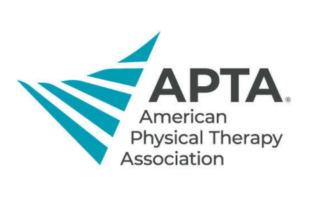The Alliance for Connected Care aims to:
Demonstrate the importance of Connected Care as a tool for improved quality and efficiency.
Build significant and high-level support for Connected Care among leaders in Congress and the Administration.
Enable more telehealth to support new models of care.
Lift geographic and site restrictions for telehealth in Medicare.
Establish a consensus-based, standardized definition of Connected Care to advance with policymakers.
Alliance News
Pediatric Emergency Care: Suicide Prevention and Telehealth in Children’s Hospital Emergency Departments
Pediatric Emergency Care: Suicide Prevention and Telehealth in Children's Hospital Emergency Departments Emergency department (ED) visits for mental health concerns are rising, and telehealth is increasingly used to provide emergency mental health care. This study aimed to describe suicide prevention practices and tele-mental health care in children's hospital EDs. The study found approximately half of children's hospital EDs use tele-mental health care, and hospitals with versus without tele-mental health care report similar rates of suicide prevention practice use.
Concord Monitor: Telehealth Prescriptions Should be Available for More Mental Health and Substance Use Patients
Concord Monitor: Telehealth Prescriptions Should be Available for More Mental Health and Substance Use Patients The New Hampshire Commission to Study Telehealth Services published a report finding that it should be legal for telehealth providers to prescribe certain medications for mental health and substance use disorders without requiring an in-person visit. Data from 2023 showed that between one-third and one-half of doctors’ visits for mental health and substance use disorders in the state were done via telehealth, compared to 5% or less for other types of visits.
Pediatric Emergency Care: Use of Emergency Telemedicine Physicians for Telephone Triage Disposition of Pediatric Patients
Pediatric Emergency Care: Use of Emergency Telemedicine Physicians for Telephone Triage Disposition of Pediatric Patients This study evaluated pediatric telephone calls to the May Clinic Health System nurse triage line that were directed to the emergency department telemedicine physician from January 1, 2019, to December 31, 2019. There were 8559 nurse line calls regarding pediatric patients, 882 of which were referred to the telemedicine physician. Among these 97.5% of patients were discharged home. The findings suggest that telemedicine physicians can safely triage care recommendations for pediatric patients.
JAMA Network: Racial and Ethnic and Rural Variations in the Use of Hybrid Prenatal Care in the US
JAMA Network: Racial and Ethnic and Rural Variations in the Use of Hybrid Prenatal Care in the US This study found that while the use of hybrid prenatal care (i.e., telehealth and in-person visits) increased among Black and Hispanic groups, rural communities still lag behind urban populations in uptake. Nationally, Black and Hispanic individuals are more likely to receive no prenatal care compared to white birthing individuals. Across all groups, those living in rural areas face additional barriers such as traveling longer distances for appointments – leading to delayed prenatal care, lesser care and poorer outcomes compared to those [...]
ASPE: Trends in In-Person and Telehealth-Involved Controlled Medication Initiations Among Adults with Private Insurance
ASPE: Trends in In-Person and Telehealth-Involved Controlled Medication Initiations Among Adults with Private Insurance This data brief presents trends in the initiations of selected, frequently prescribed controlled medications among individuals with private health insurance coverage. Results show that the majority of privately insured individuals received their initial controlled medication prescriptions without telehealth involvement, throughout the COVID-19 PHE.




















